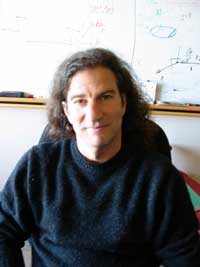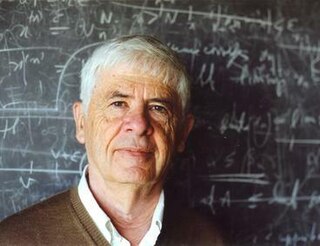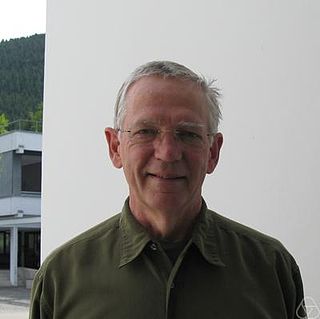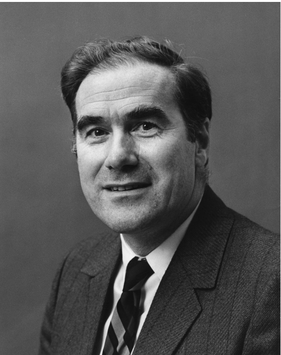
Norbert Wiener was an American computer scientist, mathematician and philosopher. He became a professor of mathematics at the Massachusetts Institute of Technology (MIT). A child prodigy, Wiener later became an early researcher in stochastic and mathematical noise processes, contributing work relevant to electronic engineering, electronic communication, and control systems.

The American Mathematical Society (AMS) is an association of professional mathematicians dedicated to the interests of mathematical research and scholarship, and serves the national and international community through its publications, meetings, advocacy and other programs.
Norman Levinson was an American mathematician. Some of his major contributions were in the study of Fourier transforms, complex analysis, non-linear differential equations, number theory, and signal processing. He worked closely with Norbert Wiener in his early career. He joined the faculty of the Massachusetts Institute of Technology in 1937. In 1954, he was awarded the Bôcher Memorial Prize of the American Mathematical Society and in 1971 the Chauvenet Prize of the Mathematical Association of America for his paper A Motivated Account of an Elementary Proof of the Prime Number Theorem. In 1974 he published a paper proving that more than a third of the zeros of the Riemann zeta function lie on the critical line, a result later improved to two fifths by Conrey.

Arthur Taylor Winfree was a theoretical biologist at the University of Arizona. He was born in St. Petersburg, Florida, United States.
The Department of Mathematics at the Massachusetts Institute of Technology is one of the premier mathematics departments both in the U.S. and the world. In the 2023 U.S. News & World Report rankings of the U.S. graduate programs for mathematics, MIT's program is ranked in the first place, tied only with that of Princeton University, and thereafter it is a three-way tie between Harvard University, Stanford University, and the University of California, Berkeley.

James Albert Sethian is a professor of mathematics at the University of California, Berkeley and the head of the Mathematics Group at the United States Department of Energy's Lawrence Berkeley National Laboratory.

Jerrold Eldon Marsden was a Canadian mathematician. He was the Carl F. Braun Professor of Engineering and Control & Dynamical Systems at the California Institute of Technology. Marsden is listed as an ISI highly cited researcher.

Alexandre Joel Chorin is an American mathematician known for his contributions to computational fluid mechanics, turbulence, and computational statistical mechanics.

Craig Arnold Tracy is an American mathematician, known for his contributions to mathematical physics and probability theory.

Gerald Beresford Whitham FRS was a British–born American applied mathematician and the Charles Lee Powell Professor of Applied Mathematics (Emeritus) of Applied & Computational Mathematics at the California Institute of Technology. He received his Ph.D. from the University of Manchester in 1953 under the direction of Sir James Lighthill. He is known for his work in fluid dynamics and waves.

Andrew Joseph Majda was an American mathematician and the Morse Professor of Arts and Sciences at the Courant Institute of Mathematical Sciences of New York University. He was known for his theoretical contributions to partial differential equations as well as his applied contributions to diverse areas including shock waves, combustion, incompressible flow, vortex dynamics, and atmospheric sciences.

Emmanuel Jean Candès is a French statistician most well known for his contributions to the field of Compressed sensing and Statistical hypothesis testing. He is a professor of statistics and electrical engineering at Stanford University, where he is also the Barnum-Simons Chair in Mathematics and Statistics. Candès is a 2017 MacArthur Fellow.

David Leigh Donoho is an American statistician. He is a professor of statistics at Stanford University, where he is also the Anne T. and Robert M. Bass Professor in the Humanities and Sciences. His work includes the development of effective methods for the construction of low-dimensional representations for high-dimensional data problems, development of wavelets for denoising and compressed sensing. He was elected a Member of the American Philosophical Society in 2019.

Tosio Kato was a Japanese mathematician who worked with partial differential equations, mathematical physics and functional analysis.
The George David Birkhoff Prize in applied mathematics is awarded jointly by the American Mathematical Society (AMS) and the Society for Industrial and Applied Mathematics (SIAM) in honor of George David Birkhoff (1884–1944). It is currently awarded every three years for an outstanding contribution to "applied mathematics in the highest and broadest sense." The recipient of the prize has to be a member of one of the awarding societies, as well as a resident of the United States of America, Canada, or Mexico. The prize was endowed in 1967, first issued in 1968, and currently (2020) amounts to US$5,000.
Hermann Flaschka was an Austrian-American mathematical physicist and Professor of Mathematics at the University of Arizona, known for his important contributions in completely integrable systems.
Marsha J. Berger is an American computer scientist. Her areas of research include numerical analysis, computational fluid dynamics, and high-performance parallel computing. She is a Silver Professor (emeritus) of Computer Science and Mathematics in the Courant Institute of Mathematical Sciences of New York University. She is Group Leader of Modeling and Simulation in the Center for Computational Mathematics at the Flatiron Institute.

Eitan Tadmor is a distinguished university professor at the University of Maryland, College Park, known for his contributions to the theory and computation of PDEs with diverse applications to shock wave, kinetic transport, incompressible flows, image processing, and self-organized collective dynamics.
The Josiah Willard Gibbs Lectureship of the American Mathematical Society is an annually awarded mathematical prize, named in honor of Josiah Willard Gibbs. The prize is intended not only for mathematicians, but also for physicists, chemists, biologists, physicians, and other scientists who have made important applications of mathematics. The purpose of the prize is to recognize outstanding achievement in applied mathematics and "to enable the public and the academic community to become aware of the contribution that mathematics is making to present-day thinking and to modern civilization."












